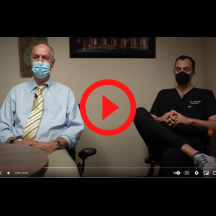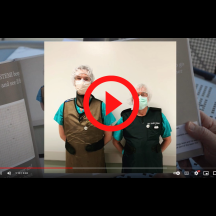News
12/21/2022
Following a heart healthy diet over the holidays doesn’t require you to avoid parties or eat bland foods.
12/20/2022
Deadly heart attacks increase during the winter holiday season. These heart issues can happen because of overindulging in alcohol and salty foods.
11/22/2022
The Sarver Heart Center honors the life and legacy of longtime supporter Thomas Warren Sullivan Sr., who died at home on Sunday, November 6, 2022.
11/03/2022
The Association of Black Cardiologists (ABC) selected Ikeotunye (Ike) Chinyere as a recipient of a Biosense Webster Inc. scholarship for Medical Students.
07/14/2022
Jeffrey Tran, MD, Sarver Heart Center cardiovascular disease fellow and former Director, Nancy K. Sweitzer, MD, PhD were awarded third place in a data challenge hosted by the American Heart Association® and Association of Black Cardiologists.
07/12/2022
Three University of Arizona College of Medicine – Tucson medical school graduates were selected to receive the 2022 Zenas B. Noon Award for Excellence in Cardiology, an award established by the family of Dr. Noon, a surgeon born in Nogales, AZ who served that community for more than three decades.
07/12/2022
Faculty and fellows with the Division of Cardiology selected two University of Arizona College of Medicine – Tucson internal medicine resident physicians to receive the Charles W. Hall Jr. and Virginia C. Hall Memorial Endowment Award for Outstanding House Officer in the Cardiac Care Unit.
06/17/2022
The relationship between Scott Klewer, MD and Jacob Klewer, MD has transformed over the last year. After years of being apart, the father and son are now co-workers at the University of Arizona College of Medicine – Tucson.
06/15/2022
Karl Kern, MD creates a customized book to commemorate his son's first STEMI during a cardiology rotation while attending the University of Arizona College of Medicine - Tucson.
05/31/2022
Six scientists representing the Sarver Heart Center (SHC) presented at the 2022 University of Arizona College of Medicine – Tucson Research Day. The daylong event targets basic scientists, clinicians, and learners to spur transdisciplinary collaboration in COM-T.











